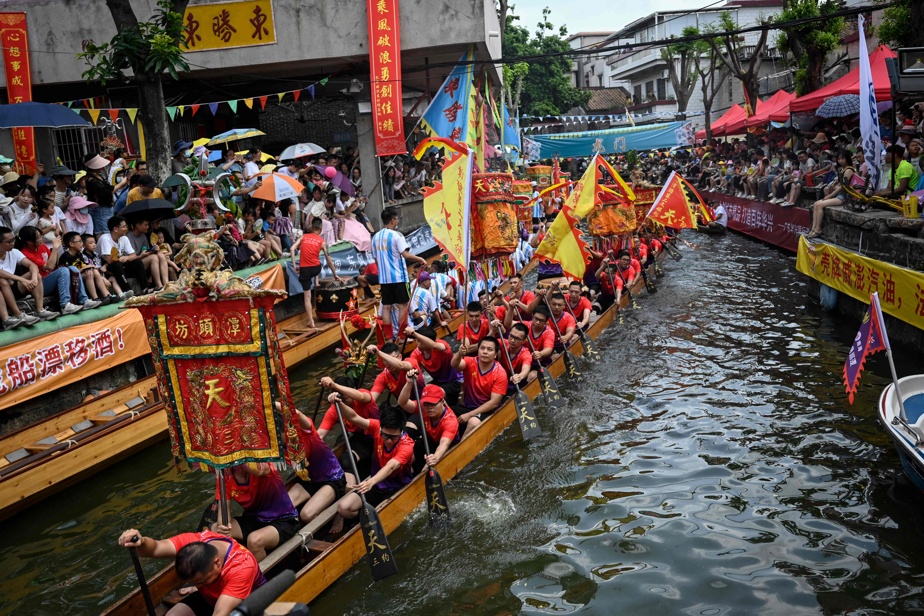(Hong Kong) Canoes topped with a dragon’s head competing to the sound of drums: neglected during the pandemic, the dragon boat festival has returned to favor in Hong Kong where it drew thousands of spectators on Thursday despite the heat lead.
“During the pandemic, I watched the races on TV, but of course it’s friendlier to be here. The event is experienced differently behind a screen, you don’t feel the atmosphere, ”explains Cheuk Shum, 43, who works in risk management, to AFP.
Before Hong Kong was shut down due to COVID-19, this 40-year-old had attended the last eight editions of this festival, a century-old tradition distinguished by UNESCO, but the pandemic then kept him away.
Like Cheuk Shum, thousands of spectators trod the sand on the main beach of Stanley, an upscale seaside resort in the south of the island, on Thursday, signaling the great return of the public to several shores of the megalopolis since the complete lifting of drastic anti-corruption measures. -COVID-19 in March.
“The festival has never ceased to exist, including during the COVID-19 years”, insists to AFP Jack Lam, volunteer for more than ten years within the association which organizes the boat race. dragoons at Stanley.
“We kept the event on a much smaller scale, but it wasn’t the same vibe,” he admits.
In Stanley, many of them arrived as early as 8 a.m., before the race even kicked off.
Despite the humidity and a temperature of more than thirty degrees, the spectators came in large numbers to see the 174 teams of rowers compete for first place aboard the ten-meter long canoes, decorated with brightly colored dragon heads.
Some participate for the first time in the festival, classified by UNESCO as an intangible heritage of humanity.
Like Christian Wertheimer, originally from England, who arrived in Hong Kong in 2018. “At the time, I was traveling in Japan during the festival, and after… COVID-19, COVID-19, COVID-19” , he breathes. “We have sorely missed these types of events and the cultural life of Hong Kong during the pandemic.”
Celebrated on the fifth day of the fifth month of the Chinese lunar calendar, the Dragon Boat Festival, a cultural and sporting event, is a tradition that dates back more than a century in China.
Also known as Tuen Ng, the festival traditionally commemorates the memory of Qu Yuan, a Chinese poet of the Warring Kingdom period (from the 5th century BC) who is believed to have committed suicide by drowning in a river after been falsely accused of treason, Jack Lam told AFP.
“Upon hearing of his death, villagers allegedly rushed into the water and rowed in search of his body, to no avail,” he said. “They would then have prepared zongzi (rice balls wrapped in bamboo leaves, editor’s note) to keep the fish away from his body, and threw them in the river”.
These traditional dishes continue to delight the taste buds of dragon boat regatta spectators today, the first edition of which was held in Hong Kong in 1976.















